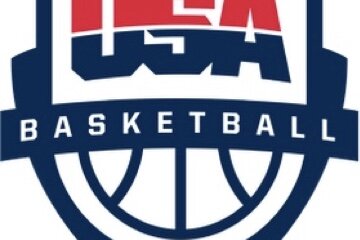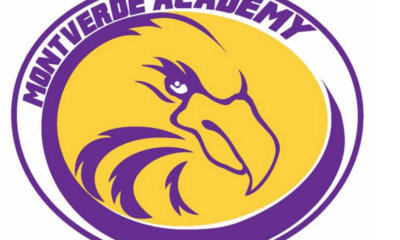Next to watching all the teams and evaluating the talent on a global scale to determine the development of girl’s basketball around the world and watching the USA team is seeing how France, Australia and Russia grow their games.
Today was a rare chance to have a very good look at the status of female basketball, and potentially, the future competition for the USA on a global scale. This opportunity was a battle between France and Australia, which the Aussies surprisingly and easily won 67-45. The other great game of the day was Russia vs. Japan. All of these games in one way of another portend the future of their older teams.
The Australians have over the last decade given the USA a tough time. The only other program that can make this same claim is Russia. Both programs are now headed in different directions. While you weren’t looking, the FIBA Europe Zone championship was won by Turkey while traditional powers France and Spain didn’t qualify. You have to come in 3rd to 5th to play in next year’s Olympic Qualifier at a site which is TBA. The enormity of this is big as these are the teams you’ll see on TV next August in London. Right now it’s expected for Australia to win the FIBA Oceanic and either China or Japan to win FIBA Asia. Brazil and Canada will duke it out for FIBA Americas. The other five spots after the host Great Britain and winner USA will be determined in the special tournament next year prior to the London Games.
With the USA Olympic team already a done deal and moving forward, the beauty of coming here is to see who could be the rising stars of the future and who could make that the USA team for Rio in 2016. There are a few college players and some young WNBA players who will have to wait for this last generation of players to move on before they can grab this honor in Rio. For the other nations here, this is also a chance to see where those programs will be in 2016.
When watching the Australian team in Brazil in 2002, you could tell this was a great generation of players for them. The problem for them was their lack of additional height to support superstar Lauren Jackson on the wings and forward positions. Their best asset after Jackson was their guards and big wings. Fortunately, for the USA, that wasn’t enough to beat them in Athens nor Beijing. The worry for such a small country which won silver the last three Olympic Games, would be where to get the next Jackson, let alone more height. After London, the majority of this current group is in their late 20’s and will push past 30 by Rio. Well, that was quickly and shockingly put aside last summer when the Aussie brought their 17u team to the FIBA Championships in France last summer. This was a team so big it dwarfed the USA squad and all teams in France except possibly China. They had nine girls 6-0 and over, including 2 6-6’s and a 6-4, all players who got court time. The only question was if their guard play was up to the size of their team. They have seven players from their 17u team at this 19u event. The changes were in the guard line adding 5-10 Rebecca Cole and 5-8 Kerryn Harrington along with 6-1 Rebecca Allen. When watching this team against host Chile, they struggled to hit shots, especially 6-4 small forward Gretel Tippett. This group lacks a guard with dominate skills and a big wing scorer which 6-3 Sara Blicavs is working to fill, to challenge the USA here at this age level. It will take a few years to get the right pieces together but if they find the right guard line to go with the big, the USA will be serious competition in Rio.
France and the USA made it to the 17u Championships which the USA won last year in France. If there were any national program that could mimic the USA for athletic talent, skilled players and passion for the game, it was France with its combination of abilities from their home country and former colonies. The French have made inroads in women’s basketball by running a national team program that gets the best young players into their own Basketball Academy system (Centre de Formation, LFB) very similar to the very successful Australian model (Australian Institute of Sports – AIS). Seeing the drumming that Australia gave France today, 67-45, it’s clear that France has the horses but not the chemistry. The French still haven’t put together a system where players have to be stars early as we do here in the USA under some major criticism. France has talent galore on all spots on the floor across all ages but a clear lack of a killer instinct at the youth level. The problem now is that France can’t retain all its players in their adult leagues and relegate their best young players to years on the bench awaiting their turn to play in an basketball economy where salaries are decreasing, hence, a desire for a lot of college-age female French players to come to the USA to play college ball. Most of these players will be mid-level and below as the best are still getting major Euros contracts by teams afraid to lose a future star. This system will ensure that the French always have a wonderful looking team but failing to be beast enough to top the other female basketball powers.
Unfortunately, this wasn’t the case with Russia until the last few years. The Russians, after the USA, had the talent, killer competitive instinct and training to challenge the USA. London will be no exception as Russia won the European Qualifier for the Olympics over a surprise Turkey. When reports of Nigeria beating Russia in the famous Reze International tournament, it was apparent a change was coming. With the end of the cold war, most of those former coaches who filled the Soviet pipeline of players now worked on their own for clubs trying to get by unless they were “super-funded” by interested parties. With these people now retiring or quitting their grassroots work, the system isn’t producing talent. Some blame the influx of American stars who will be on the USA Team roster in London for this problem. When the Americans took playing spots from Russians, they didn’t play. Every one will sign and take and either play or bench a big girl but not a guard, too much time to develop them when you have Sue Bird, Diana Taurassi and Becky Hammond ready to go. The team that showed up here in Puerto Montt was half of what a former team would look like. There were almost no size and no big guards which was a traditional Russian team composition. Today’s loss to Japan, 90-64 doesn’t help. The boys get a reprieve as they upset the USA team at the 19u Men’s in Latvia earlier this month, the women don’t. Once this great generation of Russian players departs after London, look for a battle to fill their spot in basketball’s elite. The staff said their 1993 group was a great one, I saw the team at the u17s in Rodez last year and their 3-on-3 team in Singapore and I don’t see a vibrant pipeline of talent.
When looking at all of the above, USA Basketball on the women’s side will continue to dominate well into the next two Olympic cycles of 2016 and 2020. Next year right after the London Games the next edition of the u17 FIBA World Championships take place in the Netherlands in mid-August. And, the word is that the host team could be the biggest competitor for the USA’s present crop of elite 15s-16s next year. Now all we have to do is fix all the issues here with youth basketball in America. Ah, but that’s even a longer story.
Mike Flynn is owner and operator of Blue Star Basketball and U.S. Junior Nationals. He is a National Evaluator and publishes the Blue Star Report which ranks the top 100 high school girls basketball players in the nation. He also serves as Secretary of the Middle Atlantic District AAU, National Chair for AAU Lacrosse, Consultant to Gatorade for girls basketball, member of the McDonald's All–American selection committee, & Consultant for Nike Global Basketball.

Latest Articles
-


Christopher Lawlor
/ 2 days agoU16 USA Women’s Basketball National Team roster selected for 2025 FIBA AmeriCup in Mexico from June 16-22
COLORADO SPRINGS, Colo. — USA Basketball announced today the 2025 USA Women’s U16 National...
-
Christopher Lawlor
/ 2 days agoU16 USA Men’s Basketball National Team roster chosen for 2025 FIBA AmeriCup next week in Juarez, Mexico
COLORADO SPRINGS, Colo. – The team is set and now for the games South...
-
Christopher Lawlor
/ 6 days agoNO REGRETS: Chris McNesby steps away from Roman Catholic (PA) basketball gig after second tenure with his alma mater; Bradley Wanamaker takes over coveted post
BENSALEM, Pa. – Chris McNesby has lived many lives within the Philadelphia Catholic League....
-


Events
/ 1 week agoMORE CHANGE: Montverde Academy (FL) hires Anthony Jones from nearby Orlando as girls’ head basketball coach of national program
BENSALEM, Pa. – For the second time in three months, Montverde (Fla.) Academy made...




